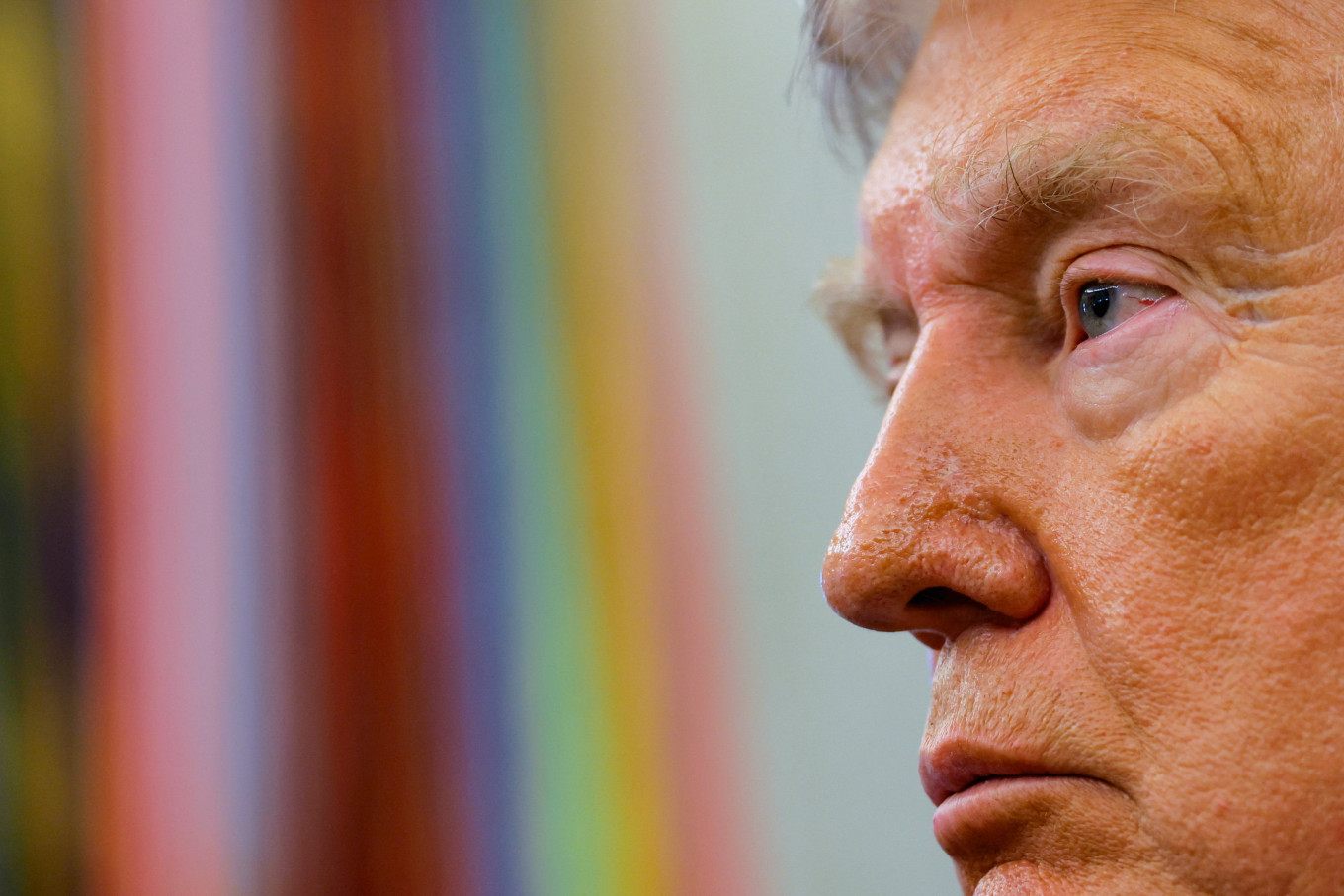Popular Reads
Top Results
Can't find what you're looking for?
View all search resultsPopular Reads
Top Results
Can't find what you're looking for?
View all search resultsHow authoritarians twist language into weapons
As populist strongmen rise across democracies, Camus’ warnings against the corruption of truth and language feel newly relevant.
Change text size
Gift Premium Articles
to Anyone
T
he world finds itself in a cultural setting in which large swaths of democratic countries place their faith in faux salvific “strongmen,” part of whose “populist” appeal is based on their ability to lie, exaggerate and bully opponents with impunity.
The philosopher, author and French resistance member Albert Camus wrote that the struggle against totalitarianism was a struggle to preserve a few vital distinctions.
It lies in the ability to think and speak clearly.
We cannot allow language to be distorted by those ambitious for power at all costs, to become a cultural weapon in their hands.
The basic principle of those who favor authoritarian rule is that everything is political: from parliamentary debates down to the lyrics and allures of Taylor Swift. When culture is seen as war, the willingness to use language to deceive, divide and demonize opponents is projected as a virtue.
For democracies, the principal means to overthrow liberal norms and institutions is to create a false equivalence with democracy’s defenders. If achieving one’s political goals requires lying and misrepresentation, then one must first accuse the people one wishes to deceive of being liars. If one wishes to betray cherished principles, one must accuse the other side of having already done this.
If one wishes to politicize the courts, make openly partisan appointments and threaten judges with whom one disagrees, then accuse the liberals of having created “lawfare”. If you find yourself supporting a convicted felon for high office, you ironically have to echo the old Marxist, Bertolt Brecht in his cynical jibe at banks, concerning the whole judiciary: “What is robbing a bank compared to founding a bank?”
There are several advantages of this strategy. It is also known, notably, as “whataboutism”.
This undermining process leads to many people raised in liberal democratic societies being shocked and confused. The distortions and allegations sow confusion which can lead into self-doubt or even a sense of guilt, which retards a concerted principled response.
Hannah Arendt went too far, but with some truth, when she claimed that totalitarian regimes require not a brainwashed population but one so confused that they have lost faith in their own ability to find out the truth.
Second, by suggesting moral equivalence, the cynical “they started it” strategy levels the moral ground for direct moves to actually politicize the jury, sponsor partisan and propagandist media sources.
Albert Camus again writes of this with prescient discernment in his 1952 book responding to Hitlerism and Stalinism, The Rebel. He is talking of the extreme, inevitable consequence of authoritarian takeovers, in the torture and murdering of outgroups:
“The triumph of the man who kills or tortures is marred by only one shadow: he is unable to feel that he is innocent. Thus, he must create guilt in his victim so that, in a world that has no direction, universal guilt will authorize no other course of action than the use of force and give its blessing to nothing but success. When the concept of innocence disappears from the mind of the innocent victim himself, the value of power establishes a definitive rule over a world of despair.”
An offshoot of this master strategy of “they started it” is that if one wishes to overthrow democratic, constitutional governance to insert an illiberal, authoritarian leader, one must present oneself as the real defender of “democracy”, “freedom” and of opaque values like “Western Civilization” or “Greatness.”
This strategy became vital to the far right after 1945. After the monstrosities committed by Hitler and Mussolini became known to the outside world, no one who still wanted to defend ethno-nationalist authoritarian rule could actually say that this was what they supported.
For two generations at least, until the historical memory failed, far right activists needed to proceed carefully or maintain a resentful silence, waiting patiently.
The result today, after the due time has elapsed and liberal democracies have failed to keep the memory of Nazism and fascism alive, is what historian Timothy Snyder calls “schizofascism”.
Vladimir Putin of Russia has effectively destroyed the free press, shut down all real opposition, and ended free and open democratic elections in his country. He has courted support from far right extremists like Aleksandr Dugin and ruthlessly eliminated critics, inside and outside of “the Motherland.”
Yet, when Putin’s tanks rolled into the sovereign territory of Ukraine, many bore “anti-Nazi” slogans on their flanks.
A further strategy which is vital to legitimizing far right takeovers of democracies, for long enough to conquer the “commanding heights” of executive, judiciary, legislative, military and police powers, is implicit in what we have now already laid out.
Authoritarian activists must work over time to “deconstruct” or dismantle the distinctions between peace and war, and to present peacetime life as a form of “battle” in which their own increasingly extreme measures are necessary.
This distortion of basic language also plays out in attempts to demonize all peaceful protestors against the new regime as “violent” and “crazed” or “extremist”.
It was the 19th century Jewish poet, Heinrich Heine, who said, prophetically, that when they start by burning books, they will end by burning people. Today, what we are seeing unfold in real time is that when convinced political partisans in democracies start by distorting language to normalize warlike hostility and false equivalence, they seem set to end democracy itself.
---
The writer is an associate professor and head of the School of Philosophy at Australian Catholic University. The article is republished under a Creative Commons license.










